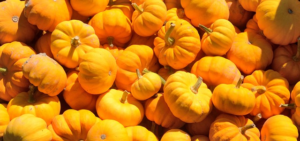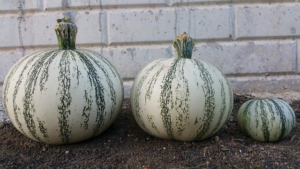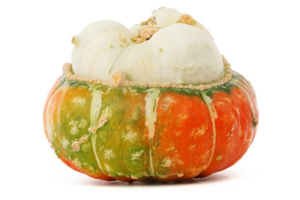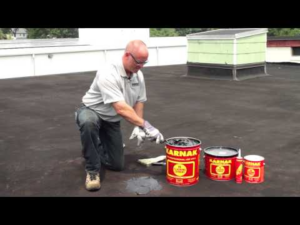
<!–
–>
Courtesy Meredith Seaver
Very tender plants like basil can be damaged when temperatures drop below the mid 50s, especially in the spring when the plants are young.
Is there anything that can be done to reduce the chance of getting squash fruit that is distorted with bumps all over the place?
If your squash fruits looked like some of today’s photos, the problem is probably one of the mosaic viruses that affect cucumbers, squash, melons, and pumpkins. The growth of infected plants can be stunted. You may see a mosaic pattern or splotching and yellow streaks on leaves, and fruits can be distorted and usually develop raised bumps or spots and lines. The fruits may also have a different texture and flavor.
These viruses spend the winter in weeds and are spread to other plants by aphids that feed on the weeds in the spring and then carry the viruses into gardens during the early growing season.
Insect feeding can spread mosaic viruses from infected to healthy plants during the gardening season, but you can also move the virus from plant to plant with tools or on your hands or gardening gloves.
Herbicide exposure, heat stress and nutrient deficiencies can worsen the symptoms on infected plants.
Courtesy Photo
Chilling (cold) injury can affect many different plants.
To reduce the risk of losing your cucumbers, squash, and melons to mosaic viruses, take steps to prevent the problem.
- Practice good weed control, especially in the fall to reduce overwintering hosts for viruses and insect vectors. Remove any weeds that you find around your garden again in the spring.
- Control aphid populations. Scout for aphids frequently and apply insecticidal soap or horticultural oil at the first sign of them. Repeat the applications as needed and as recommended on the product label.
- Exclude insects early in the season by covering your plants completely with floating row cover or very fine-meshed tulle fabric. Remove the covering once your plants begin bloom.
- If you find virus symptoms on any plants in the garden, remove them to protect your healthy plants. Leaving infected plants in the garden gives aphids more time to pick up and transfer the virus to other plants. Infected plants won’t “get better,” so there’s no reason to keep them in the garden.
- Sanitize any tools you use with susceptible plants, including any tools used to remove infected plants. It’s a good idea to keep your gardening tools clean whether or not you are having disease problems.
- Look for certified virus-free seeds if you start your plants by seed in the garden.
- Choose resistant varieties when purchasing seeds or transplants.
I keep waiting for good …….
Source: https://www.heraldextra.com/lifestyles/home-and-garden/2022/may/07/garden-help-desk/






